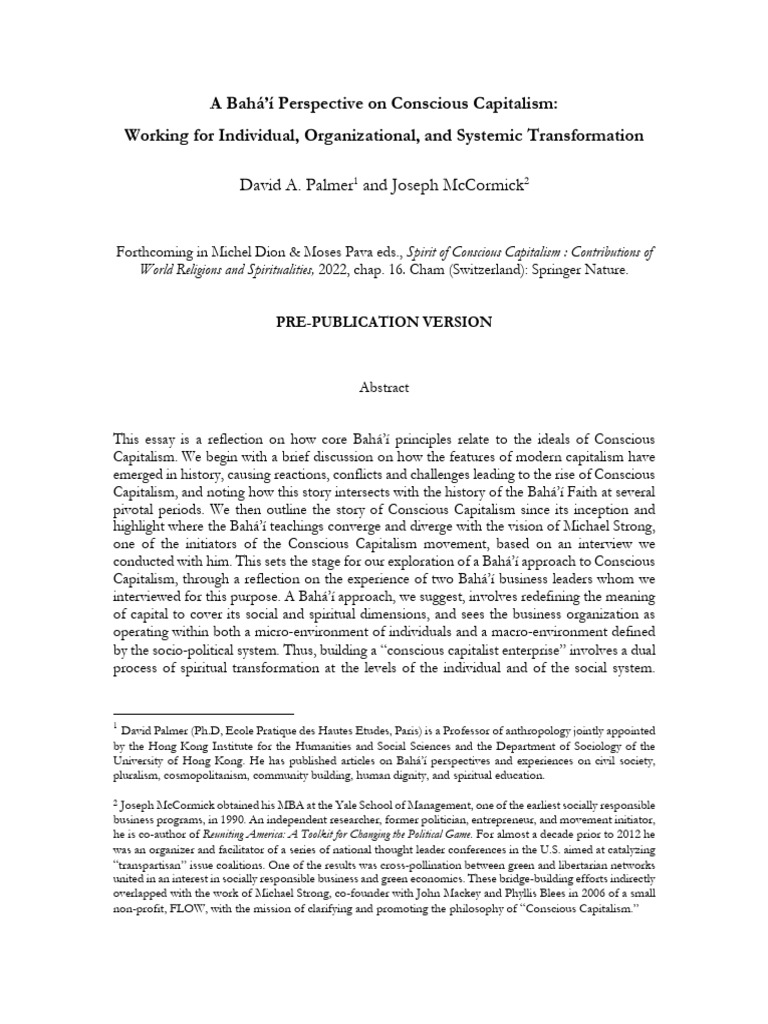Throughout history, humankind has wrestled with the notion of ownership over nature, grappling with the implications of stewardship versus dominion. This inquiry is especially poignant within the context of Bahá’í teachings, which advocate an intricate relationship between humanity and the natural world. The fundamental question arises: who, indeed, owns nature? Is it a mere possession to be exploited, or a sacred trust to be nurtured? This essay aims to unravel the profundity of these inquiries from a Bahá’í perspective, exploring the theological, ethical, and practical dimensions inherent in our relationship with the environment.
The Bahá’í Faith posits that all of creation is connected and that humanity has a pivotal role within this interconnected web. In the teachings of Bahá’u’lláh, the founder of the Bahá’í Faith, there is an emphasis on the unity of humanity and the natural order. This interconnectedness suggests that nature is not a commodity owned by individuals or nations but rather a collective inheritance that must be preserved for future generations. This perspective fosters a sense of communal responsibility rather than individual ownership.
Furthermore, Bahá’í principles encourage the recognition of the environment’s intrinsic value. Rather than viewing nature simply as a resource for human consumption, Bahá’ís are taught to appreciate its inherent beauty and significance as part of divine creation. This appreciation prompts a reevaluation of our relationship with the Earth. The ethos of stewardship champions sustainability and ecological conservation, urging individuals and communities to protect ecosystems, flora, and fauna as acts of reverence toward the divine.
In examining who truly owns nature, it becomes essential to consider the implications of dominion. The Bahá’í teachings delineate a contrast between dominion, which often manifests as exploitation, and stewardship, which embodies care and responsibility. The former leads to environmental degradation and depletion; the latter promotes harmony and sustainability. By promoting stewardship, the Bahá’í Faith provides a framework for understanding our responsibilities toward the environment as the custodians of the Earth.
This tension between ownership and stewardship can be further explored through the lens of environmental ethics, which raises questions about moral obligations to the natural world. A Bahá’í perspective aligns with a biocentric view, where all forms of life are intrinsically valued. Such an ethical stance necessitates actions that protect the environment and promote social and ecological justice. Here, it is crucial to underscore that the teachings do not advocate for an indifference to the material world. On the contrary, they recognize the physical universe as a reflection of spiritual reality.
Moreover, the realization of the oneness of humanity speaks directly to our responsibility towards nature. The Bahá’í principle of unity embodies the idea that human well-being is inextricably linked to the preservation of the environment. It emphasizes that the degradation of the natural world ultimately affects social structures, economic stability, and individual health. Consequently, when we harm nature, we inflict wounds upon ourselves. The recognition of this interconnected fate compels individuals to act with foresight and care.
In the pursuit of environmental justice, Bahá’í communities are called upon to engage in systematic actions that address ecological issues, challenge systems of inequity, and promote sustainable practices. Collaboration is essential, as no singular entity holds the answer to these profound challenges. The Bahá’í teachings advocate for the pooling of resources, ideas, and efforts in order to effectively tackle issues such as climate change, loss of biodiversity, and resource depletion. This collaborative spirit extends beyond borders and cultures, reinforcing the notion that nature belongs to all.
Engaging with nature also requires an introspective approach. It invites a contemplative examination of one’s values and choices. The Bahá’í Faith invites adherents to nurture a spiritual connection with the environment, fostering a sense of reverence and responsibility. This spiritual connection ensures that individuals act not merely out of obligation but from a place of understanding and respect for the natural world. It elevates the discourse beyond materialistic ownership to a profound engagement with the divine tapestry of creation.
Moreover, educational initiatives within Bahá’í communities focus on integrating environmental consciousness into the framework of personal and collective development. Such educational endeavors seek to illuminate the principles of sustainability, interdependence, and respect for nature, highlighting their significance in our everyday lives. This continual learning cultivates a culture of stewardship, where individuals, families, and communities unite in their commitment to environmental integrity.
To encapsulate, the inquiry of ownership over nature invites a reconsideration of fundamental assumptions regarding humanity’s role within the ecological system. The Bahá’í perspective elucidates the principle of stewardship as a guiding ethic, positing that nature is not owned but entrusted to humanity. It is through this lens that the teachings inspire profound respect for the environment and encourage collective action toward sustainability. Ultimately, who owns nature? In the Bahá’í view, nature belongs to all and requires a shared commitment to preserve its sanctity for the betterment of humanity and the fulfillment of the divine purpose. As stewards, it becomes our solemn duty to engage with the Earth compassionately and sustainably, ensuring the legacy of a thriving planet for generations yet to come.
